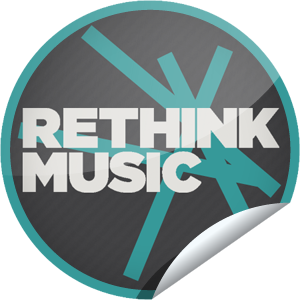 Several weeks ago I attended the Rethink Music conference in Boston. I can honestly say it felt like I downloaded the entire music industry in 48 hours. A non-stop parade of executives and managers concisely detailed the challenges they faced in the digital music age. In panel after panel, their guarded optimism shone like a dull reflection off a classic automobile that won’t start. Between furious note-taking and tweeting, I got all the the insight, confidence and enthusiasm I needed to begin writing the book I’ve been planning for ten years.
Several weeks ago I attended the Rethink Music conference in Boston. I can honestly say it felt like I downloaded the entire music industry in 48 hours. A non-stop parade of executives and managers concisely detailed the challenges they faced in the digital music age. In panel after panel, their guarded optimism shone like a dull reflection off a classic automobile that won’t start. Between furious note-taking and tweeting, I got all the the insight, confidence and enthusiasm I needed to begin writing the book I’ve been planning for ten years.
I want to extend thanks to the organizers and everyone who made this conference possible. Attending it changed the way I look at music and the music industry forever. Writing a book about musicians, fans, technology and the music industry has been a dream of mine since Napster hit the scene. After spending the beginning of the year cataloging my key thoughts and ideas from the past decade, I am now tackling this monster project every day.
I approached the conference deeply entrenched in my disdain for the overall apparatus that controls access to and thus commodifies music. I believed that technology got us into this mess and could get us out of it. I felt that music should be free like water (and bottled for profit when it serves the artist’s best interests). Most importantly, I felt that our culture had become a wasteland for the benefit of a corporate media oligarchy.
After attending the Rethink Music conference, that smoldering resentment of the exploitative music industry has never been more fully stoked. The trampling of artists’ and fans’ rights in a quest for revenue continues unabated, but you can’t blame the industry. It’s their job. But I’m not writing the book to change the attitudes of the music industry. I’m trying to change the attitudes of fans and artists — it’s the only way to force the industry to change.
Here are my five big “lessons learned” from the conference:
#5 – Lawyer Jokes
I learned what many Americans already know — that lawyers are generally evil, and entertainment lawyers are worse. I always knew IP law was horribly broken, but I never realized how this was the absolute bedrock of the talent exploitation business. he lawmen justify their dubious ethical position by telling musicians, “I’m doing this to protect your rights and revenue”, which rings about as true as a cigarette company telling a smoker they are protecting their freedom of personal choice. What’s worse — with rock and pop publishing deals involving multiple parties, I learned that some big deals just don’t get made. The result? The rights holders can’t afford legal representation to make a deal after the fact, caught in a Catch-22 because the deal isn’t done. Millions of dollars are floating around unpaid because deals don’t get made, period.
#4 – Unintellectual Property
I learned the industry is really as dumb as you think they are when it comes to technology. Incredibly, Napster hasn’t really taught them anything, now 10 years down the road. There were a few exceptions — Open EMI’s pre-cleared license hacker sandbox was the most notable. The Echo Nest is clearly and deservedly well-positioned to become industry tech darlings, enabling the big boys to play with the same tools the small, agile tech startups hold inherent to their hacker talent and creativity. But by and large, the entertainment is a lot like the government — it still doesn’t understand IP in the 21st century, and thinks it can use the old tactics to prevent the freeing of music for the good of fans and artists (to benefit the industry). But without technology in their blood, it’s going to be a multibillion dollar quixotic struggle of epic proportions to try to steer the future of music into conglomerate control. Since they can’t dam Niagara Falls, all they can do is pass laws to make it illegal to visit. But what happens when all the rivers flood? Consider that in the U.S. Apple generates over 100x the annual revenue of all domestic record labels combined, and then you see how badly the music industry needs help in the technology space. This is all so ironic because the entire record industry is based around leveraging technology to make people pay for music.
#3 – Complexity
I learned that one of if not the biggest impediments to the industry generating revenue in the digital space comes from their technological stupidity. One of the main themes of the conference was how screwed everyone will be for years to come because of the industry’s inability to manage the information that is responsible for profitability. There are an infinity of micro payments flying around for songs with different metadata and all manner of licensing, publishing and other exploitation rights and rates to be tracked. Though there are myriad solutions being put on the table, the industry seems to have collectively shrugged its shoulders, hoping the geeks will figure out eventually if they throw enough money at the problem. I heard a lot of guarded optimism as a facade for folks who were clearly flummoxed by the complexity of digital music analytics.
#2 – Gamification of Social Music Advocacy
I learned that what I believe to be most exciting and promising thing happening in music today — the gamification of social music advocacy — is something the industry is largely oblivious to. While the conference’s Genesis award winner Have You Heard was honored for proposing such a system, it’s insanity that the big players like Spotify had nothing specific to show in that regard. Perhaps they thought they were protecting “trade secrets” but I’ve got news for them: this is exactly why the music industry is choking. someone smarter than you is going to beat you to it. You need a Turntable.fm to come along and flout licensing until the Big 4 say, “why, look at how you’ve grown! Accept our terms or we’ll kill you.” That’s the industry’s current model for innovation — let the geeks figure it out, then buy it or sue it out of existence. For the young entrepreneurs fresh out of Harvard who proposed the “FourSquare for fans” idea at the conference — I’m afraid this too could be your fate.
#1 – Artist Responsibility
Perhaps the most important lesson of all: I learned that when artists blame the fucked up music industry for their failure to succeed — or worse, their failure to get paid from their success — they’re ultimately blaming the industry for their own failure to understand the music or the business. There are a million “How to Succeed in the Music Industry” books, none of which have ever helped anyone write a good song. Conversely, there are thousands of great songs written by musicians that no one will ever hear, because the artist has no faith, interest or aptitude in the music business. Why should they? The industry is actually OK with its role as artist scapegoat, because if the artists really understood their responsibilities, they wouldn’t have to put up with such exploitation. Being a musician is really about being an entrepreneur, starting a small music business. What we need is millions of small music businesses, not a handful of monopolies trying to squeeze the last dime out of a dying industry, willing only to co-opt and rarely to innovate. Music, like life, is free and alive — and as they said in Jurassic Park, “life finds a way.”
 For those of you who don’t already know, the purpose of this blog is mostly to chronicle my journey as a first-time book author. The nonfiction book I’m currently working on (currently sharing the same working title as the blog) is something that’s been cooking on the backburner of my mind ever since Napster first hit the scene. To put it bluntly, as a musician and fan, I couldn’t help but notice how the music industry was ruining music for profit.
For those of you who don’t already know, the purpose of this blog is mostly to chronicle my journey as a first-time book author. The nonfiction book I’m currently working on (currently sharing the same working title as the blog) is something that’s been cooking on the backburner of my mind ever since Napster first hit the scene. To put it bluntly, as a musician and fan, I couldn’t help but notice how the music industry was ruining music for profit.


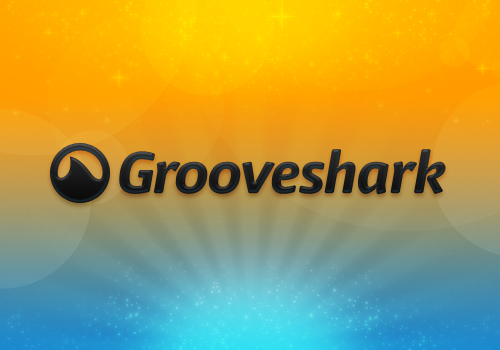
 This comment was posted to
This comment was posted to 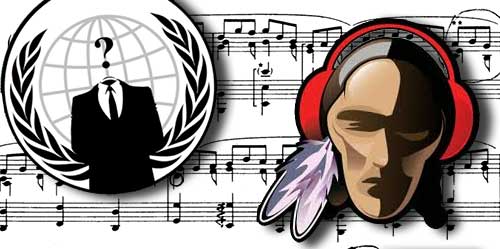
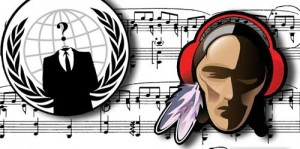 Anonymous announced today (
Anonymous announced today (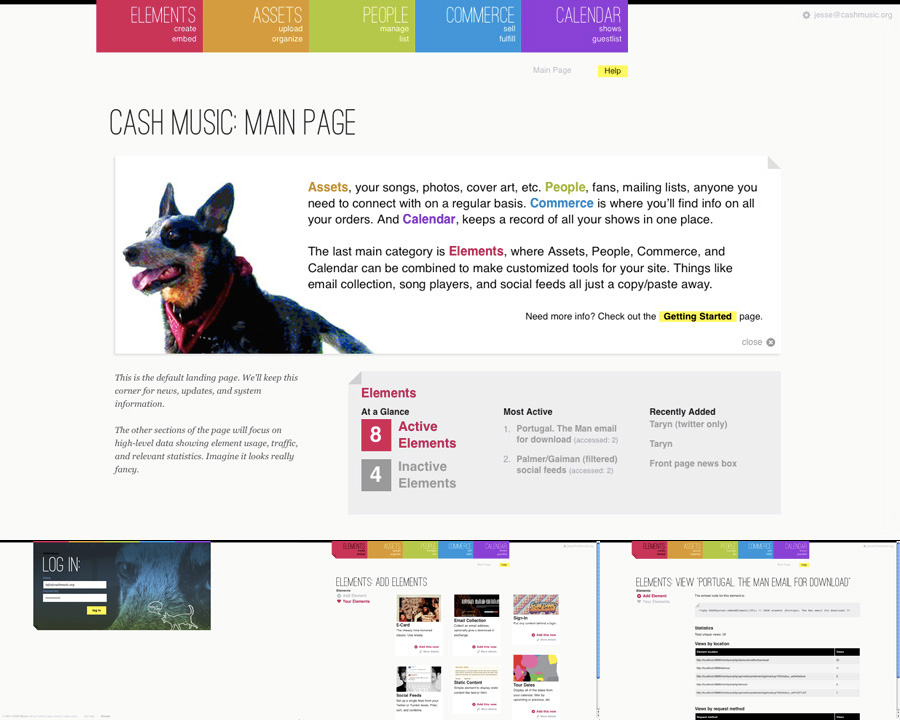
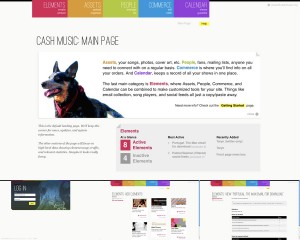
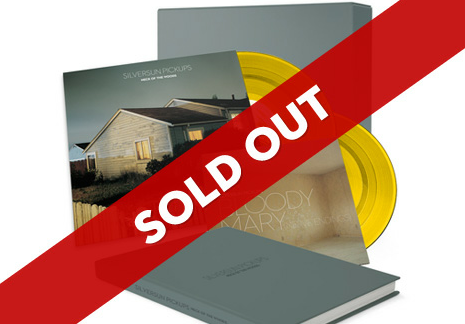
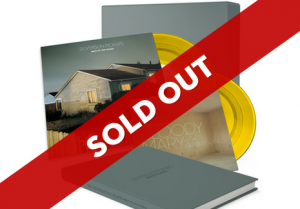 There is a simple principle at work behind the thousands of musicians successfully crowdfunding their own album releases on
There is a simple principle at work behind the thousands of musicians successfully crowdfunding their own album releases on 
